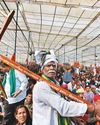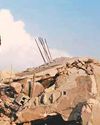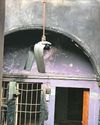
IN a national broadcast on August 5, 2024, Bangladesh Army Chief General Waker-Uz-Zaman, dressed in combat fatigues, announced that Prime Minister Sheikh Hasina had resigned, and that the military would establish an interim government. "The country has suffered a lot, the economy has been hit and many people have been killed-it is time to stop the violence." Zaman also announced his plans to consult the president to form a caretaker government. Within three days, on the August 8, Muhammad Yunus took oath as the chief adviser of the country's interim government.
The protests in Bangladesh, which started last month over civil service job quotas, very rapidly escalated into an intensely politicised movement demanding Prime Minister Hasina's resignation. The violence resulted in over 400 deaths since July. Like all previous political turmoil in Bangladesh-or erstwhile East Pakistan-the minority Hindu population, now fallen to about eight per cent, were at the receiving end of the violence. Besides the tragic loss of lives, perhaps the most shocking image that appeared was protesters climbing the statue of Sheikh Mujibur Rahman, the central figure of Bangladesh's liberation, using hammers to break the statue. Incidentally, Rahman was assassinated by a group of disgruntled Bangladesh Army officials on August 15, 1975, along with most of his family members, except two daughters, one of them being the ousted Prime Minister Hasina.
This story is from the September 1, 2024 edition of Outlook.
Start your 7-day Magzter GOLD free trial to access thousands of curated premium stories, and 9,000+ magazines and newspapers.
Already a subscriber ? Sign In
This story is from the September 1, 2024 edition of Outlook.
Start your 7-day Magzter GOLD free trial to access thousands of curated premium stories, and 9,000+ magazines and newspapers.
Already a subscriber? Sign In

Protest 2.0
Farmers still have hopes from their leaders, but time is running out. The enemies, in the meanwhile, are sharpening their weapons

Time for Course Correction
What the protest by Punjab's landed peasantry tells us about the state's economy and society

The Farmer-Composing Antagonist
Farmer leader Jagjit Singh Dallewal has been on a fast-unto-death at Khanauri border to pressurise the government to fulfil its promises to the farming community

Nomadland
All eyes are on President-elect Donald Trump and his policy on immigration

Far from Home
We have forgotten the plight of Afghans who fled to India, and continue to suffer

Bang Bang That Awful Sound
What happens when we listen closely to the soundscape of war?

Refugee Dilemma
For most Indian-origin Sri Lankan Tamils, who are victims of ethnic conflict and civil war, proving that they are not illegal migrants is a nearly impossible task

They Poured Fire on Us
The resilience of refugee women from Sudan, Ethiopia and Yemen in the face of war and displacement is remarkable

The Sound and the Fury
Iraqi poet, novelist, translator and scholar Sinan Antoon was born and raised in Baghdad.

The Day I Became a Woman
In a country where authorities have been directly engaging in the gruesome war against women for decades, artists like Nahid Hassanzadeh stand apart as a voice of dissent–a haunting reminder of the unwavering spirit of the rebellious Iranian women fighting against the Islamic Republic’s violent crackdown.